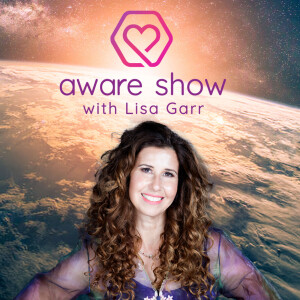
Judith Orloff, MD: Using Empathy as a Healing Force – Part 2
 2024-06-04
2024-06-04
Download
Right click and do "save link as"
Do you enjoy spending a lot of time alone? Are you more of an introvert? Are you sensitive and empathic to others’ needs? All of these traits may make it challenging to navigate our busy, noise-filled lives. Would you like to learn to be a more empowered empath? Lisa continues the conversation today with guest Judith Orloff, MD. Dr. Orloff is a psychiatrist, an empath, and author of the new book, “The Genius of Empathy,” which offers powerful skills to tap into empathy as a daily healing practice in your life and relationships.
She talks about how mirror neurons in our brains activate empathy and how empathy then activates the parasympathetic nervous system. This tones the vagus nerve and relaxation can happen more easily. It changes the fight-or-flight reaction. Your immunity increases if you watch an act of empathy. For example, when you see loving, compassionate mothers with their children, it will help you relax. There is empathy in the world, even though all we seem to see on the news are wars and violence.
We can affect one another. If you are empathic, for example, and waiting in a long line, you may pick up the feelings of those around you. Being compassionate can change the energy.
She also talks about relationships for empaths, including work situations. She suggests keeping a light schedule before an event or planning to stay there just an hour or so. Setting boundaries is very important. She further discusses how empathic people may think things are their fault, but she teaches how to let go and go into forgiveness.
She advises us to not think about the past all the time. You can forgive people who hurt you by accepting that they can’t change. If someone is mistreating you, minimize the contact with them or don’t have contact at all if possible. Enforce healthy boundaries. Meditation helps.
She also talks about social activists and how retreats and time away can be very healing. It is necessary for them to replenish their energy and develop empathy for themselves. Meditation and mindfulness practices can be very beneficial.
She believes all people, no matter their situation, are looking for empathy. When you are around challenging people, she suggests practicing a “sacred pause.” Take a pause, breathe, re-center, and resume the conversation from a healthier place.
You can also practice empathic listening, which is a way to hold a support space for someone. She offers practical tools and steps which are included in her latest book, “The Genius of Empathy.” She also hosts Dr. Orloff’s Empath Support Community on social media. It’s free and everyone is welcome.
Dr. Orloff has written many books, including “The Empath’s Survival Guide” and “Thriving as an Empath.” She is a New York Times bestselling author and a UCLA clinical faculty member. She synthesizes conventional medicine with cutting-edge knowledge of intuition, energy, and spirituality. Dr. Orloff specializes in treating highly sensitive people in her private practice. She has been featured on The Today Show, CNN, Oprah Magazine, and the New York Times. This is Part 2 of the interview.
Info: DrJudithOrloff.com
More Episodes
Marie Diamond: Feng Shui Your Life – Part 2
 2024-08-13
2024-08-13
 2024-08-13
2024-08-13
Marie Diamond: Feng Shui Your Life – Part 1
 2024-08-06
2024-08-06
 2024-08-06
2024-08-06
Ken Honda: What is True Wealth? – Part 2
 2024-07-02
2024-07-02
 2024-07-02
2024-07-02
Ken Honda: What is True Wealth? Part 1
 2024-06-25
2024-06-25
 2024-06-25
2024-06-25
012345678910111213141516171819
Create your
podcast in
minutes
- Full-featured podcast site
- Unlimited storage and bandwidth
- Comprehensive podcast stats
- Distribute to Apple Podcasts, Spotify, and more
- Make money with your podcast
It is Free
- Privacy Policy
- Cookie Policy
- Terms of Use
- Consent Preferences
- Copyright © 2015-2024 Podbean.com





